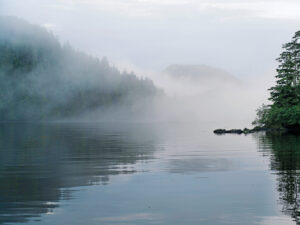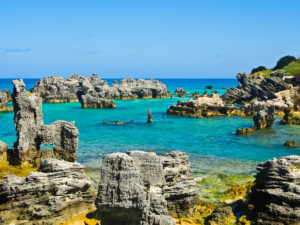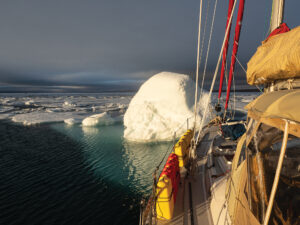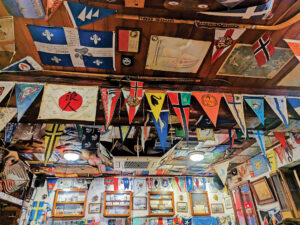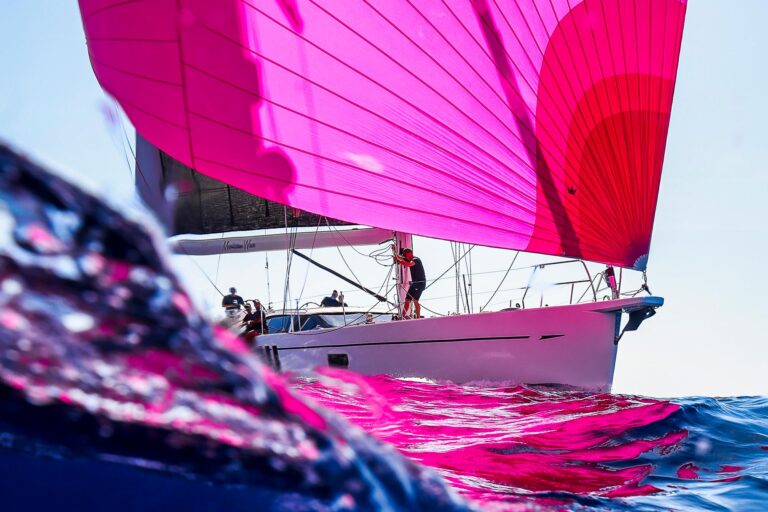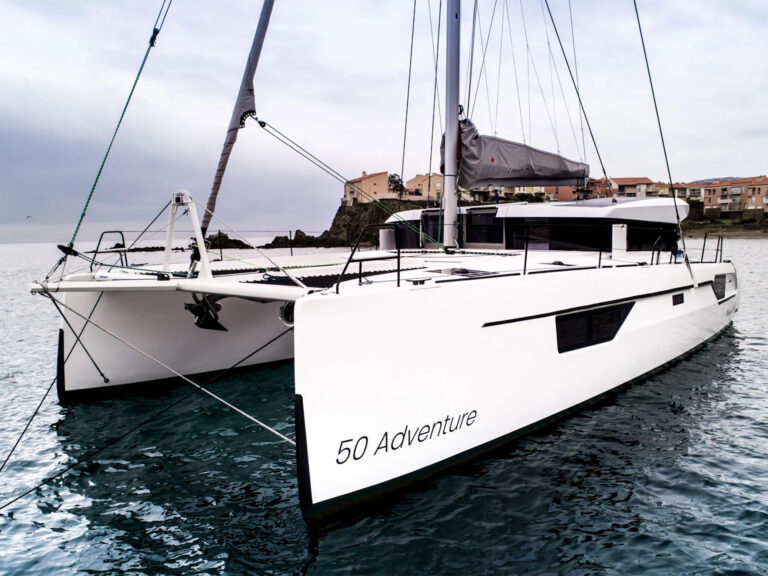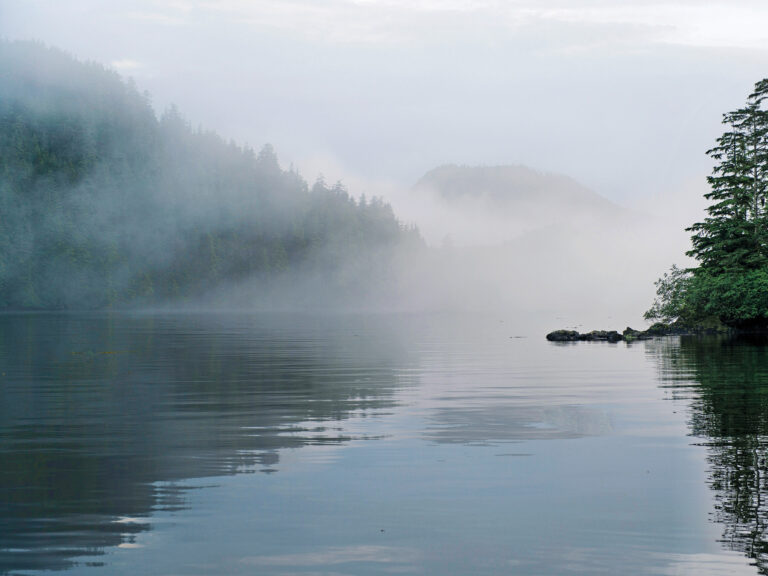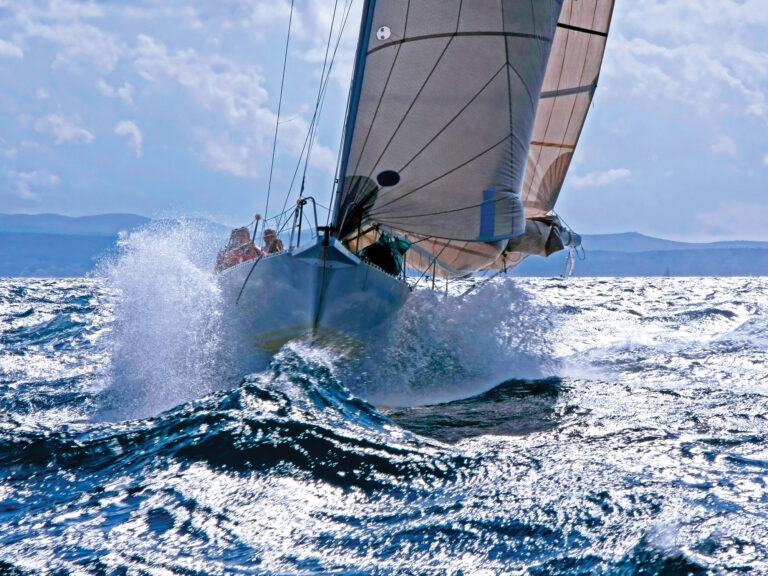We were ready for a visit home. Despite how much we loved backpacking in Guatemala, after more than a month traveling the dusty roads of the highlands, I was craving a long, hot bath with a loofah sponge, a good haircut, unlimited salads, and a perfectly made cup of Earl Grey tea with 2% milk. Douglas also was talking about cravings: less fattening food, bookstores, and getting back to playing handball at the YMCA with his buddies. Being on the road made us sorely miss our live-aboard routines, the cleanliness and lightness of living on our own boat and cooking our own food. Going home offered some of these luxuries, and we both were excited to be with our families and friends.
Before we’d left Ithaka at Tortugal Marina, just outside of Fronteras in Guatemala’s Rio Dulce River, we’d gone through every inch of the boat to clean her, check the systems, lock her up, and tie her down; we made lists of things we needed to replace, do, or acquire when we got back to the States. During our get-ready week, as one of the daily hourlong thunder-and-lightning storms of the rainy season were pelting down around us, we even felt the tremors of an earthquake, and took it as an omen to leave the Rio for a while.
| | If we hadnt used an item in the year weve lived aboard, most likely it ended up at Marios Swap Meet, a popular cruisers weekend mecca on the Rio.* * *|
Any item aboard that we hadnt used in a year, excluding spares, ended up in one of several piles marked “Swap Meet,” “Donate,” or “Home.” We were ruthless. We took six big plastic bags of clothes and general-purpose items to the Casa Guatemala Orphanage in Fronteras; we sold two overflowing laundry baskets of gear and equipment at the weekly Marios Cruisers Swap Meet, then we lugged with us on the bus to Guatemala City six duffle bags and cartons of boat gear and personal items we hadnt needed, freeing the entire large locker under our V-berth, which allowed us to reorganize, inventory, and redistribute our gear all over the boat. Its thrilling to have more room aboard, and to think of returning to a boat thats finally, if temporarily, orderly.
When we arrived in Guate, while killing time before one of the medical appointments for my infected thumb, Douglas and I stumbled across the Cafe Luna Hotel (e-mail esaraidc@intelnet.net.gt or call 502-331-1568), a great little four-room hotel located in Z_ona_ 10, the most desirable section of this busy city, just up the hill from Guate’s wonderful textile museum. Andre Racine, Cafe Luna’s Canadian owner, said we were welcome to store all our America-bound bags and cartons at his hotel while we backpacked in the Highlands.
If youre over 40 and youve forgotten what its like to be considered cool by a Gen-X-er, go backpacking in Guatemala, where youll meet plenty of young packers from all over the world. While waiting for a chicken bus, or walking a trail, theyll start telling you where theyve been and all about how theyve been out a couple of months already; then theyll ask you if youre on vacation. (Translation: “So, tender foot, youre down here doing a little slumming for a few days in some fancy hotel or something, right?”) Thats when you casually mention that youve been out a year already, that you sailed down here from the States on your sailboat, and how much you liked Cuba, Mexico, and Belize. Their eyes get big, and, for a few minutes anyway, you feel 10 feet tall. (OK, its a cheap thrill.)
| | The view from San Antonio, a village known for its weavers* * *|
Coming home to Newport after being away for a year has been wonderful. Weve spent time with loved ones and friends. Weve flown out to Ohio to go to Douglass first family reunion. And weve crossed lots of things off a seemingly interminable “To Do” list. One highlight has been opening our mail, including several letters in Spanish from the fisherman friends we made in Cuba.
Coming home also has given us a chance to really read emails from readers of our Logs. Weve loved hearing from sailors and non-sailors alike and have been especially gratified to hear from all the people following the Logs who are on their own one or two-year countdown before going cruising. Weve selected some questions from that batch, and will do our best to answer them here.
Putting Ithaka To Bed
Bill H. of Vancouver, British Columbia, asks how we’ve “left the boat at the Tortugal Marina.”
Well, we brought the boat in reverse stern-to the dock, picking up a mooring ball at the bow on the way in. Ithaka now has her bow tied to the mooring ball, as well as one of our anchors out from the bow. Like a cat’s cradle, her stern is tied to the dock, and she has spring lines holding her away from the boats lying to port and starboard of us. We also have all our fenders out, as do our neighboring boats. Access to Ithaka‘s cockpit is via a plank secured to the boat and the dock. Thierry, the manager of Tortugal lives on site and is easy to contact via phone or email; his staff opens Ithaka up every sunny day to prevent mildew. We feel confident in Thierry, who’s a cruising sailor himself, and in this operation.
| | Tortugal* * *|
How Much Does It Cost To Cruise?
The big question. Greg J., from the Great Lakes, says he and his wife are going cruising in just two more years._ “From what Ive read,”_ he says_, “it sounds like you can live like a king on a thousand a month. Is this still true? Assuming the boat is paid for, have the costs surprised you at all?”_
This is, by far, the most frequently asked question we receive from readers. Yes, the costs have surprised us; we spent our entire first-year budget in the first six months. But mostly, the extra costs came from repairs we didn’t expect to have to make. Our windlass began to give out in Annapolis, and by Virginia we had to buy and professionally install a new one. We developed some electrical problems, and had to have some wiring redone. We bought a new battery monitor, had it professionally installed. It never worked right, and two weeks later, while we were in Florida, we had to have it reinstalled—an expensive delay. What we learned from this, however, is that we hadn’t budgeted enough for normal repairs for the first year, even though Ithaka is a well-found boat, and she and her systems seemed in excellent condition when we left Newport. Also, the ICW was a money pit for us, as we made that voyage during the freezing months of November and December last year, and during brutal ice blizzards, in order to use our heater at night, a few times we had to tie up at marinas, which are exorbitantly expensive—we hadn’t budgeted for this. It all added up fast.
Once you get out of the United States, however, you can live majestically on an average of $1,000 a month, provided you stay away from shore and out of the marinas. When you’re out on the hook, fishing for your dinner, eating from your stores, and keeping your wallets in a drawer and not your pocket, you’ll have what we call “Zero-Dollar Days.” This was especially easy to do in Cuba and Belize. However, whenever we’ve wanted to go ashore, or explore inhabited islands for a few days, the wallets come out of the drawer, go into our pockets, and money seems to gush out at an alarming rate, as some strange compulsion to buy previously uncoveted things seems to take over temporarily. Plus, we rented a car while we were in Mexico and went inland to explore, and to see the Mayan ruins of Chichen Itza—an expensive proposition, as we left the boat in Puerto Aventuras Marina and stayed in hotels for a couple of days. Still, it was an experience we wouldn’t want to have missed. However, Guatemala is downright cheap; while traveling about, we rarely spent as much as $30 a day, and that includes the $3.65 a day to keep Ithaka at Tortugal Marina.
A good rule of thumb is to figure out your annual budget, including repairs, and a trip home, then add 50% to it for the first year. No joke. Its far easier to budget accurately, and spend lots less money for the second year and beyond, but the first year holds surprises. Now that were going into year two, our expenses have dropped dramatically, although I think $1,000 a month is still unrealistic for our kind of cruising. If you have insurance premiums, and you want to fly home once a year, its probably better to count on a minimum $2,500-a-month budget.
| | The ruins of the amazing Mayan city of Chichen-Itza* * *|
Insurance
Ed G. is having a boat custom built, then he and his wife are going to cruise the Pacific Northwest before heading south.__ He asked “What do you guys do about insurance?”
Douglas and I have full health insurance—mine through Blue Cross, and Douglas’ through Cassin International Insurance (888-724-5427 or CassinIns@map.com), which specializes in insurance underwriting for international travelers. We also have boat insurance with full navigation coverage (from Derick Brundick at Able Maritime Yacht Insurance in Florida, 888-607-9572, email dbrundick@aol.com), which means we can leave Ithaka within the hurricane belt during hurricane season. Lastly, we have very inexpensive emergency-evacuation insurance with DAN (Divers Alert Network at www.diversalertnetwork.org or 800-446-2671.)
Internet Access
Bob C. from Paso Robles, California, asks_ “how do you log onto the Internet in remote places?”_
Today, even the smallest burgs in out-of-the-way places tend to have an Internet cafe. Prices range from $5 to $10 an hour. Phone lines can be troublesome and transmission speed tends to be slow, but in the fullness of time, messages get in and out. On Ithaka, we also have an Inmarsat-C for emergency e-mail and to send in our weekly Logs to Cruising World. But that’s an expensive method, and we rely on land-based stations for our personal internet access.
Cruising Kids
Ken and Virginia B. of Mystic, Connecticut, want to sail their new Brewer 12.8-M cutter along our route in the Caribbean, and want to know_ “Do you encounter many families with children?”_ Laura J. writes that she’d “like to get in touch with other families who are involved with cruising.”
Along our route in the Western Caribbean, we’ve come across precious few boats with children onboard, but then again we don’t have our antennae up for boats with kids. A good place to look for family cruisers is Isla Mujeres, Mexico, a great cruising gathering place. On the morning net in Isla, on VHF channel 13, just ask if anyone in the anchorage has kids onboard. Do the same on the Northwest Caribbean Net and the Rio Dulce net. To get in touch with other families who may be involved with cruising, try the _Cruising World_ bulletin board, and check out the lecture series at all the major boat shows. Almost all of them now include panel discussions and lectures on family cruising by people who have firsthand experience.
| | Isla Mujeres is a festive cruising hub. Ithaka was there for Carnival.* * *|
Hows Your Thumb?
Weve gotten lots of notes from doctors who read the Logs and who were concerned about my thumb. Thanks. I did go to my own doctor, Joe England in Jamestown, RI, when Douglas and I got home to Newport. Joe determined that there was a persistent fungal infection still living in my thumb; he put me on Lamisil, and thats having a rapid positive effect. He says Ill need to stay on it for a few weeks.
Deanna F. adds to the discourse of how to get worms out from under the skin. “My son used duct tape to remove the bott fly larva as they hatched…” (Good God.)
By the way, weve heard from several doctors who told us they want to donate their time and send medical supplies, specifically outdated meds that are still viable, to the AkTenamit Clinic on the Rio, and weve gotten them in touch with the right people. Weve also heard from Rotarian members, and generous readers, who decided to sponsor children in the AkTenamit school program. Thank you for your concern and generosity.
Peter M. of Charleston, South Carolina, asks about how we handle our bills and mail.
Our friend Nete, in Rhode Island, tends to our mail and bills, and has sent mail to us via other friends twice over the past year. We officially changed our address to her address, so now everything goes to her house. She pays the bills with a checkbook we gave her. She also opens all our mail and e-mails us those details too. Whenever we meet a cruiser who has a guest flying back to the States, we give the guest our flat, stamped mail. Whenever we know of someone coming down, we ask them to bring the important mail only, and Nete then sends it to them by Fed Ex. Cruisers in the Northwest Caribbean tend to do this for one another, as the mail down here is pretty unreliable.
| | * * *The “monoliths on Glovers” — people passing through this Belizian atoll have left stones in various artistic arrangements.|
Security
Claire W. of Minneapolis asks us about security on Ithaka and what precautions we take.
We never leave the boat open when we’re ashore. We lock our dinghy to the dock when we go into any town. The outboard, oars, and gas can are locked onto the dinghy. On Ithaka, we don’t leave much on deck, and we’ve run a cable through the handles of our jerry cans, which are padlocked in a group to a stanchion. Now that we’re in the Rio, where there’s a history of petty theft, we hoist our dinghy out of the water every evening on a three-point bridle attached to the main halyard. In addition, we don’t wear jewelry, and in large cities we use an under-our-clothes money belt or neck purse, and generally wear our daypacks in the front.
Retrospective Wishes
Mick K of San Jose, California, wrote and asked us: “Looking back on your first year, what do you wish you’d done before you left?”
Theres lots of things we wish we had done before we left, but if we had done everything we think we should have done, we wouldnt be leaving for another 40 years. The point is to get out, because theres no way you can be prepared for everything anyway. Still, both of us are sorry we didnt take some Spanish lessons. That would have enhanced our visit to Cuba, Mexico and Guatemala (luckily, they speak English in Belize). But were remedying this by taking intensive Spanish in Guatemala.
Martha D. of Youngstown, Ohio, asked “I know it’s not fair, but if you had to boil down the most important things you’ve learned so far this year, what would they be?”
This ones easy. First, it doesnt matter where you go, as long as you go. Second, whereever you do go, itll take longer to get there than you thought; if its as good as you hoped, youll stay a lot longer than you figured on (and thats the treat). And the third important thing weve both learned is that, after apologizing for your tone, you should never start a sentence with the word “but.”

